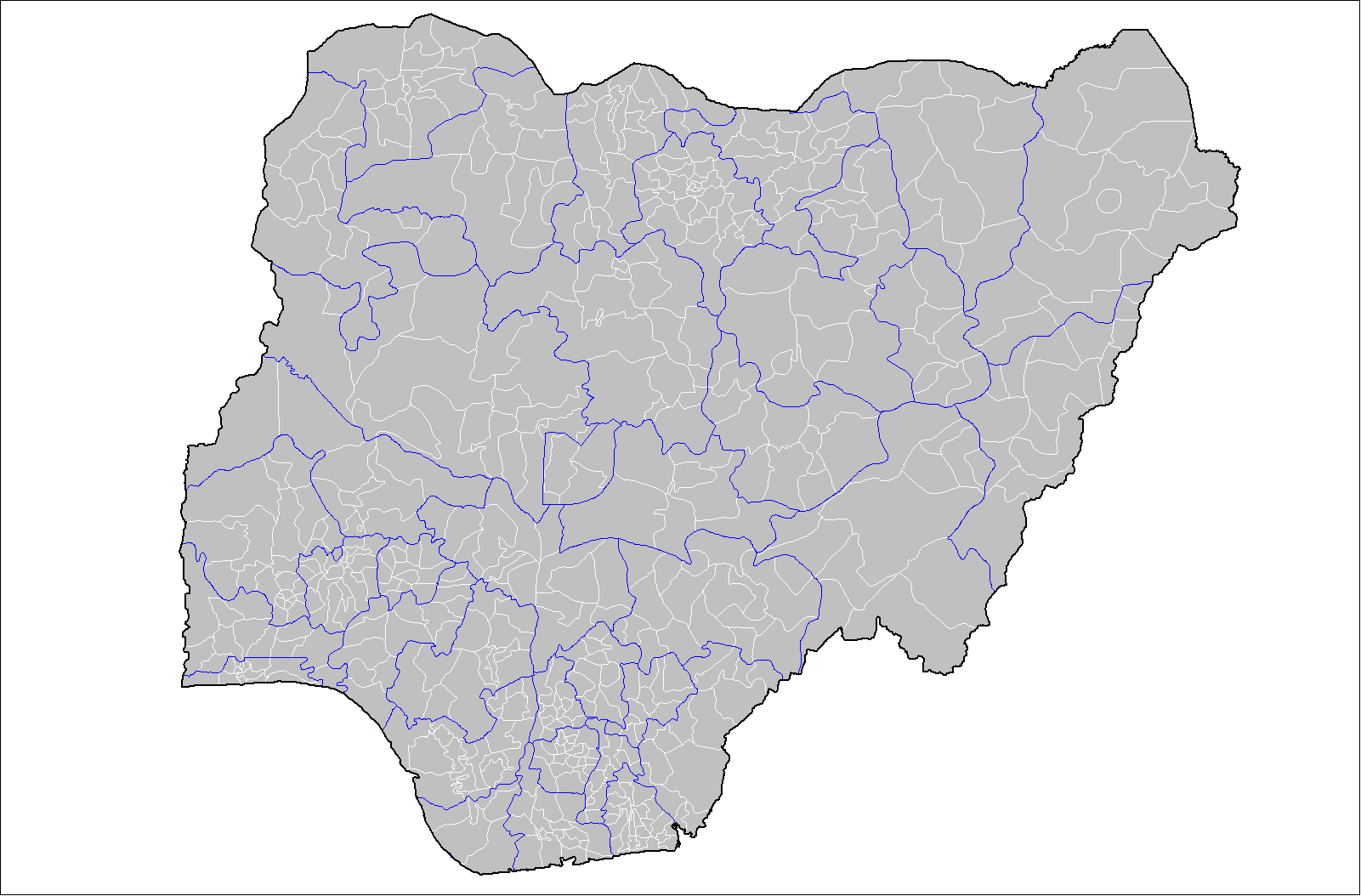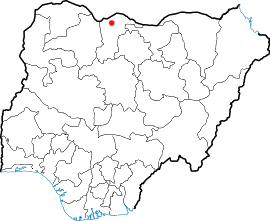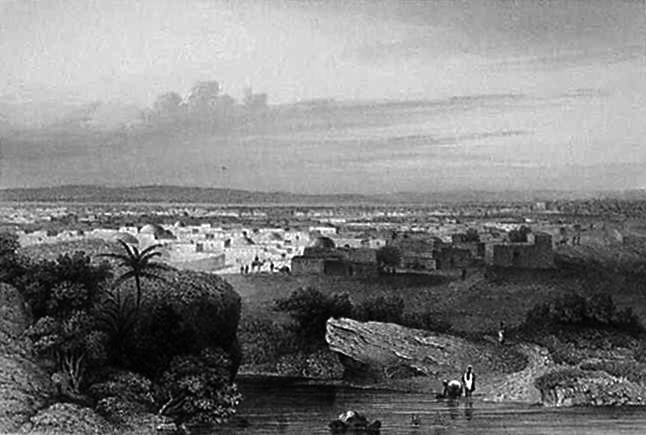|
Kazaure Emirate
Kazaure is an Emirate and a Local Government Areas of Nigeria, Local Government Area of Jigawa State, Nigeria. Its headquarters is in the ancient city of Kazaure. Early history Kazaure was said to have been first settled by a group of Hausa (also known as Habe) hunter clan under the leadership of a warrior called Kutumbi. It was around the year 1300 CE. According to Oral Tradition passed down through the centuries by Griots, Kutumbi and his people were said to have migrated from the settlement of blacksmiths living on the Dala Hills-believed by historians to be the first inhabitants of the land now known as Kano (city), Kano. The legend of Kazaure's founding tells the story of how Kutumbi on one of his hunting expeditions found a valley surrounded by huge defensive plateaus and rich with rivers and small streams. He stayed in the area for quite some time until his family became worried over his long absence which was contrary to his usual hunting habit, they followed his tracks ... [...More Info...] [...Related Items...] OR: [Wikipedia] [Google] [Baidu] |
Local Government Areas Of Nigeria
Nigeria has 774 local government areas (LGAs), each administered by a local government council consisting of a chairman, who is the chief executive, and other elected members, who are referred to as councillors. Each LGA is further subdivided into a minimum of ten and a maximum of twenty wards. A ward is administered by a councillor, who reports directly to the LGA chairman. The councillors fall under the legislative arm of the local government, Local Government, the third tier of government in Nigeria, below the state governments and the federal government. Functions The functions of local governments are detailed in the Constitution of Nigeria, Nigerian constitution and include the following: * Economic recommendations to the State. * Collection of taxes and fees. * Establishment and maintenance of cemeteries, burial grounds and homes for the destitute or infirm. * Licensing of bicycles, trucks (other than mechanically propelled trucks), canoes, wheelbarrows and carts. * Esta ... [...More Info...] [...Related Items...] OR: [Wikipedia] [Google] [Baidu] |
Usman Dan Fodio
Shehu Usman dan Fodio (; full name; 15 December 1754 – 20 April 1817). (Uthman ibn Muhammad ibn Uthman ibn Saalih ibn Haarun ibn Muhammad Ghurdu ibn Muhammad Jubba ibn Muhammad Sambo ibn Maysiran ibn Ayyub ibn Buba Baba ibn Musa Jokolli ibn Imam Dembube`) was a Fulani scholar, Islamic religious teacher, poet, revolutionary and a philosopher who founded the Sokoto Caliphate and ruled as its first caliph. After the successful revolution, the "Jama'a" gave him the title Amir al-Mu'minin (commander of the faithful). He rejected the throne and continued calling to Islam. Born in Gobir, Usman was a descendant of the Torodbe clans of urbanized ethnic Fulani people living in the Hausa Kingdoms since the early 1400s. In early life, Usman became well educated in Islamic studies and soon, he began to preach Sunni Islam throughout territories that would later become parts of independent Nigeria and Cameroon. He wrote more than a hundred books concerning religion, government, cultur ... [...More Info...] [...Related Items...] OR: [Wikipedia] [Google] [Baidu] |
HRH Dr
Royal Highness is a style used to address or refer to some members of royal families, usually princes or princesses. Kings and their female consorts, as well as queens regnant, are usually styled ''Majesty''. When used as a direct form of address, spoken or written, it takes the form Your Royal Highness. When used as a third-person reference, it is gender-specific (His Royal Highness or Her Royal Highness, both abbreviated HRH) and in plural, Their Royal Highnesses (TRH). It is used also for hereditary members of Former Reigning Royal Houses. Origin By the 17th century, all local rulers in Italy adopted the style ''Highness'', which was once used by kings and emperors only. According to Denis Diderot's ''Encyclopédie'', the style of ''Royal Highness'' was created on the insistence of Archduke Ferdinand of Austria, Cardinal-Infante of Spain, a younger son of King Philip III of Spain. The archduke was travelling through Italy on his way to the Low Countries and, upon meet ... [...More Info...] [...Related Items...] OR: [Wikipedia] [Google] [Baidu] |
Three Emirs Of Kazaure's Yarimawan Fulani Dynasty
3 (three) is a number, numeral and digit. It is the natural number following 2 and preceding 4, and is the smallest odd prime number and the only prime preceding a square number. It has religious and cultural significance in many societies. Evolution of the Arabic digit The use of three lines to denote the number 3 occurred in many writing systems, including some (like Roman and Chinese numerals) that are still in use. That was also the original representation of 3 in the Brahmic (Indian) numerical notation, its earliest forms aligned vertically. However, during the Gupta Empire the sign was modified by the addition of a curve on each line. The Nāgarī script rotated the lines clockwise, so they appeared horizontally, and ended each line with a short downward stroke on the right. In cursive script, the three strokes were eventually connected to form a glyph resembling a with an additional stroke at the bottom: ३. The Indian digits spread to the Caliphate in the 9th ... [...More Info...] [...Related Items...] OR: [Wikipedia] [Google] [Baidu] |
Muhammed Bello
Muhammadu Bello (; ; 3 November 1781 – 25 October 1837) was the second Caliph of Sokoto and reigned from 1817 until 1837. He was also an active writer of history, poetry, and Islamic studies. He was the son and primary aide to Usman dan Fodio, the founder of the Sokoto Caliphate and the first caliph. During his reign, he encouraged the spread of Islam throughout the region, increasing education for both men and women, and the establishment of Islamic courts. He died on October 25, 1837, and was succeeded by his brother Abu Bakr Atiku and then his son, Aliyu Babba. Early life Muhammad Bello was born on 3 November 1781. His father, Usman dan Fodio, was an Islamic preacher and scholar. His mother, Hauwa, was the daughter of a Fulani Islamic scholar and a friend of his father. He was nicknamed 'Bello', meaning 'assistant' or 'helper' in Fulfulde. This likely due to his attachment to his father, who Bello always accompanied everywhere he went from a very young age later bec ... [...More Info...] [...Related Items...] OR: [Wikipedia] [Google] [Baidu] |
Dambazawa
The Dambazawa (or Danbazawa) are a Fulani clan residing mainly in Kano State, Nigeria. They were among the key promoters, planners and executors of the Fulani jihad in Kano, which took place between 1804 and 1807 under the leadership of Shehu Usuman dan Fodiyo. The clan was said to be the top financiers of the jihad because it was said to be extremely wealthy at the time of the jihad. Other Fulani clans that participated in the jihad included: the Jobawa, the Yolawa, the Sullubawa, the Danejawa and others, as well as a contingent of the native Hausa people led by Malam Usuman bahaushe. Together, they formed a formidable force and toppled the 158-year Kutumbawa dynasty led by its last ruler Muhammad Alwali dan Yaji dan Dadi bakutumbe who ruled between 1781 and 1806. History and origin The origin of the Dambazawa is as unclear as that of the Fulani race itself, but sources within the clan believe it to be of a ''Dayebe'' Fulani group. It was at the time of Sundiata Keita ... [...More Info...] [...Related Items...] OR: [Wikipedia] [Google] [Baidu] |
Daura Emirate
The Daura Emirate is a religious and Nigerian traditional state, traditional state in Northern Nigeria, the Emir of Daura still rules as a ceremonial hereditary monarch, and maintains a palace. Muhammad Bashar became the emir in 1966, reigning for 41 years until his death in 2007, On 28 February 2007, Faruk Umar Faruk, Umar Faruk Umar became Emir of Daura succeeding Muhammad Bashar. History Origins The ''Girgam'' mentions that the Daura Emirate was established in 2000 BC and it all began from Canaan with a man called Najibu who migrated with a group of people to Ancient Egypt. They settled in Ancient Egypt for a while and had very close relations with the Copts. They moved on to Tripoli, Libya, Tripoli and their leader who was then Abdudar sought to rule over the people but was unsuccessful, so he moved on with his people to a place called Tsohon Birni today in Northern Nigeria and it was this event that paved the way for the establishment of the Daura Emirate and city. Daura is ... [...More Info...] [...Related Items...] OR: [Wikipedia] [Google] [Baidu] |
Katsina Emirate
The history of Katsina State, Katsina stretches over a millennium. It is part of the Hausa Kingdoms, Hausa Bakwai states, believed to be founded by the descendants of Bayajidda according to legend. Throughout its history, Katsina has been governed by various dynasties, including the Wangarawa and the Dallazawa, and was a vassal to neighboring empires such as Songhai Empire, Songhai and Kanem–Bornu Empire, Bornu. At its peak, Katsina (city), Katsina's capital was a prominent city in the Sudan (region), western Sudan, attracting scholars from the wider region, especially during the decline of Timbuktu in the 17th and 18th centuries. However, in 1903, Katsina came under British Empire, British colonial rule. In 1987, it was established as a States of Nigeria, state within modern Nigeria. Etymology In accordance with oral tradition, the name "Katsina" is said to have originated from a princess of Daura Emirate, Daura who wedded Janzama, the ruler of the Durbawa of Durbi Takushey ... [...More Info...] [...Related Items...] OR: [Wikipedia] [Google] [Baidu] |
Kano Emirate
The Kano Emirate was a Muslim state in northern Nigeria formed in 1805 during the Fulani jihad when the Muslim Hausa people, Hausa-led Sultanate of Kano was deposed and replaced by a new emirate which became a vassal state of the Sokoto Caliphate. During and after the Northern Nigeria Protectorate, British colonial period, the powers of the emirate were steadily reduced. The emirate is preserved and integrated into modern Nigeria as the Kano Emirate Council. History Hausa kingdom and Sultanate The Hausa Kingdom of Kano was based on an ancient settlement of Dala Hill. According to the Kano Chronicle, while small chiefdoms were previously present in the area, Bagauda, a grandson of the mythical hero Bayajidda, became the first king of Kano in 999, reigning until 1063. Muhammad Rumfa ascended to the throne in 1463 and reigned until 1499. During his reign he reformed the city, expanded the Sahelian architecture, Sahelian Gidan Rumfa (Emir's Palace), and played a role in the furth ... [...More Info...] [...Related Items...] OR: [Wikipedia] [Google] [Baidu] |
Dambatta
Danbatta (or Dambatta or Dambarta) is a Local Government Area in Kano State, Nigeria. It is located about 49 miles north of Kano city at the Northern border of Kano state with Jigawa state. It has headquarters at Danbatta town, located on the A2 highway. It has an approximate area of 732 km and a population of 207,968 at the 2006 census. It is bordered to the north and east by Kazaure and Babura Local Government areas of Jigawa State respectively, and to the south and west by Minjibir and Makoda local Government areas of Kano state respectively. The town is the location for the Audu Bako College of Agriculture (ABCOA) and Kano State School of Basic Midwifery. It is also home to Zone 3 of the Kano state Hospitals Management Board (HMB), Zonal Office of the Kano state Ministry of Education (MOE), Zonal Medical Store of Kano State Ministry of health (MOH), Zonal Office of Kano State Agricultural and Rural Development Agency (KNARDA) and Zonal Office of the Kano State Water R ... [...More Info...] [...Related Items...] OR: [Wikipedia] [Google] [Baidu] |
Fulani Jihad
The Jihad of Usman dan Fodio was a religio-military conflict in present-day Nigeria and Cameroon. The war began when Usman dan Fodio, a prominent Islamic scholar and teacher, was exiled from Gobir by King Yunfa, one of his former students. Usman dan Fodio assembled an Islamic army to lead a jihad against Gobir and other Hausa Kingdoms of northern Nigeria. The forces of Usman dan Fodio slowly took over more and more of the Hausa kingdoms, capturing Gobir in 1808 and executing Yunfa. The war resulted in the creation of the Sokoto Caliphate, initially headed by Usman dan Fodio himself, which became one of the largest states in Africa in the 19th century. His success inspired similar jihads in Western Africa. Background The ancient Kanem–Bornu Empire was losing power by the mid-18th century. There was large-scale immigration by Fulani pastoralists, leading to resource competition with more settled Hausa communities despite their shared religion. Several Hausa kingdoms previou ... [...More Info...] [...Related Items...] OR: [Wikipedia] [Google] [Baidu] |
States Of Nigeria
Nigeria is a federation of 36 states, each of which is a semi-autonomous political unit that shares power with the federal government as enumerated under the Constitution of Nigeria, Constitution of the Federal Republic of Nigeria. In addition to the states, there is the Federal Capital Territory (Nigeria), Federal Capital Territory (FCT), in which the capital city of Abuja is located. The FCT is not a state, but a territory of the federal government, governed by Federal Capital Territory Administration, an administration headed by List of ministers of the Federal Capital Territory (Nigeria), a minister. Each state is subdivided into Local government areas of Nigeria, local government areas (LGAs). There are 774 local governments in Nigeria. Under the Nigerian Constitution, the 36 states enjoy substantial autonomy but are not sovereign entities, as ultimate authority lies with the federal government. Amendments to the constitution can be proposed by the National Assembly, but ... [...More Info...] [...Related Items...] OR: [Wikipedia] [Google] [Baidu] |






